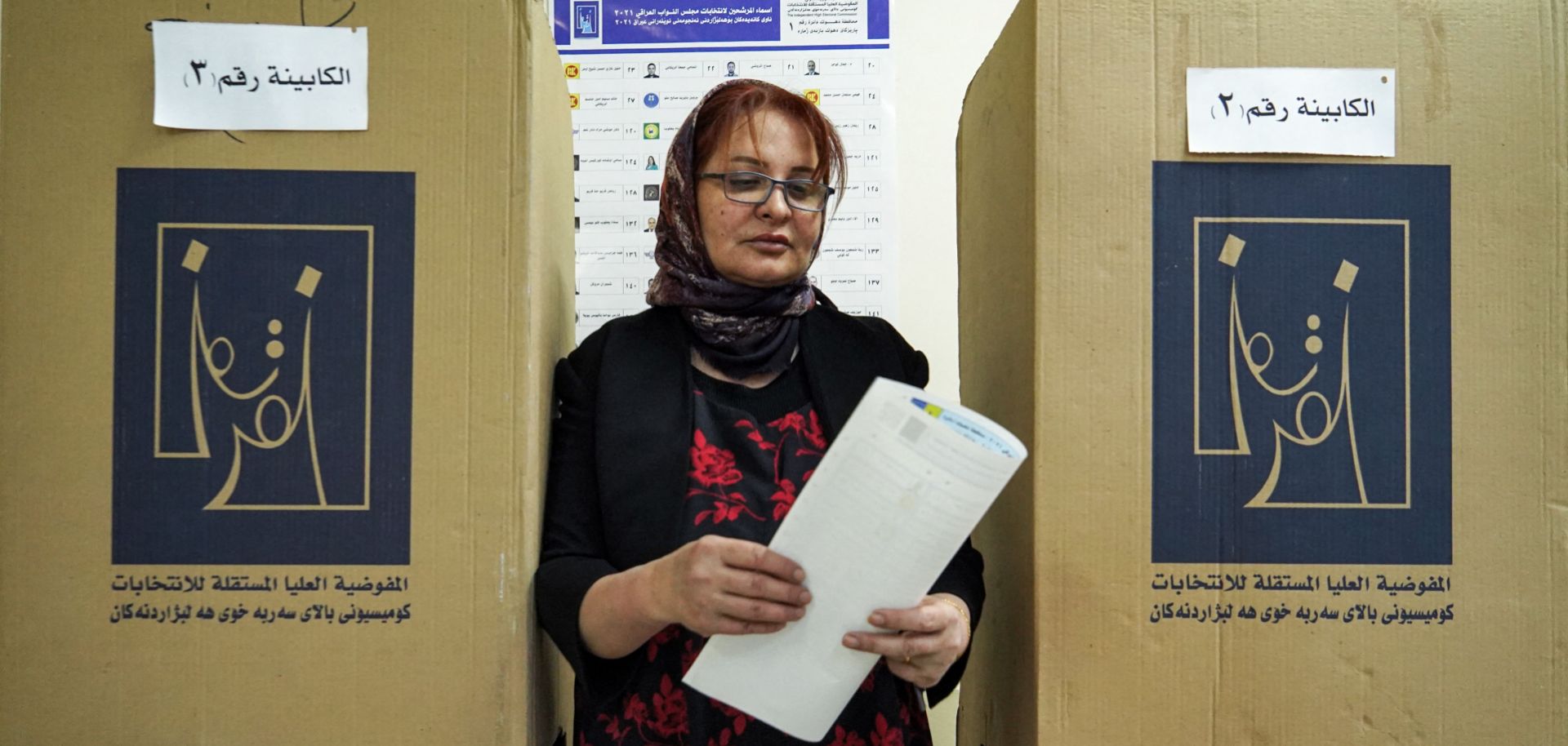Iraq’s Oct. 10 parliamentary election has left Shiite groups with the most seats, portending several more years of political continuity. But the loss of seats by Iran-aligned groups, combined with the anti-government sentiment indicated by low voter turnout, will also increase the likelihood of social unrest. Iraq’s latest parliamentary election will yield little change in the country, despite being held months early to satisfy activists’ demands for reform. Results released by Iraq’s High Electoral Commission on Oct. 11 indicate that the parliamentary group aligned with Shiite cleric Moqtada al-Sadr won 73 seats, significantly more than any other group, followed by two established Sunni and Shiite coalitions. Sadrists (followers of al-Sadr) will thus play the dominant role in the government formation process, just as they did following the last election in 2018. This, along with Iraqis signaling their lack of trust in Baghdad by not voting, will contribute to stagnant politics...

